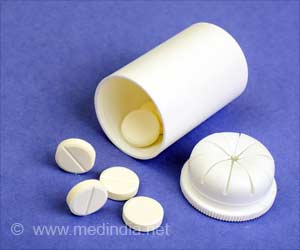New Delhi: Merck & Co, and the Indian Council of Medical Research (ICMR) will conduct studies on the former's investigational cervical cancer drug, Gardasil.
Merck & Co, known as MSD India, has entered into a collaboration with the Indian Council of Medical Research (ICMR) to conduct studies on the former's investigational cervical cancer drug, Gardasil.
This is the first public-private partnership in vaccine development in India. Under the agreement, clinical trials will be conducted for a human pappiloma virus (HPV) vaccine that causes cervical cancer.The vaccine that has been developed by Merck and will be tried on 30 to 40,000 women in two phases. The volunteers will be between 17 and 18 years of age.
While the first phase will take two years, the second will take four years to complete and the cost of the trials is estimated to be around $45 million.
The Indian trials will be carried out to see if it's safe and equally efficacious for women in a tropical country.
Upon completion of the study in India, the two partners will work together to assess the efficacy of the vaccine in the Indian population and identifying ways of providing the same.
The New Jersey-headquartered pharma company has already applied for permission from the Food and Drug Administration (FDA) to launch the vaccine in the US market and is likely to apply for regulatory approval for the EU region soon.
Advertisement
The company will supply the vaccine free of cost for its use in the study. Gardasil is designed to protect against four types of human papillomavirus (HPV) - 6, 11, 16 and 18. Besides Merck, GSK too is working on a similar vaccine.
Advertisement
The clinical trials with Merck's HPV vaccine would test its role in controlling the spread of the disease in India. If found successful, it may open a feasible option for MSD to market the drug in other developing countries.
Merck says that collaborative partnerships between industry, NGOs and individual governments are critical in determining the best approach to the introduction of investigational medicines and vaccines in the public sector of low-income countries.
ICMR is one of the oldest medical research councils in the world. It started in 1911 as the Indian Research Fund Association (IRFA) and was renamed ICMR in 1950, soon after Independence, on the recommendations of the health survey and development committee, headed by Sir Joseph Bhore. It has a network of 26 research institutes and over 70 field stations in various parts of the country, and has an annual budget of Rs. 231 crore (Rs. 2310 million).











